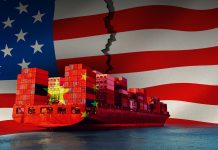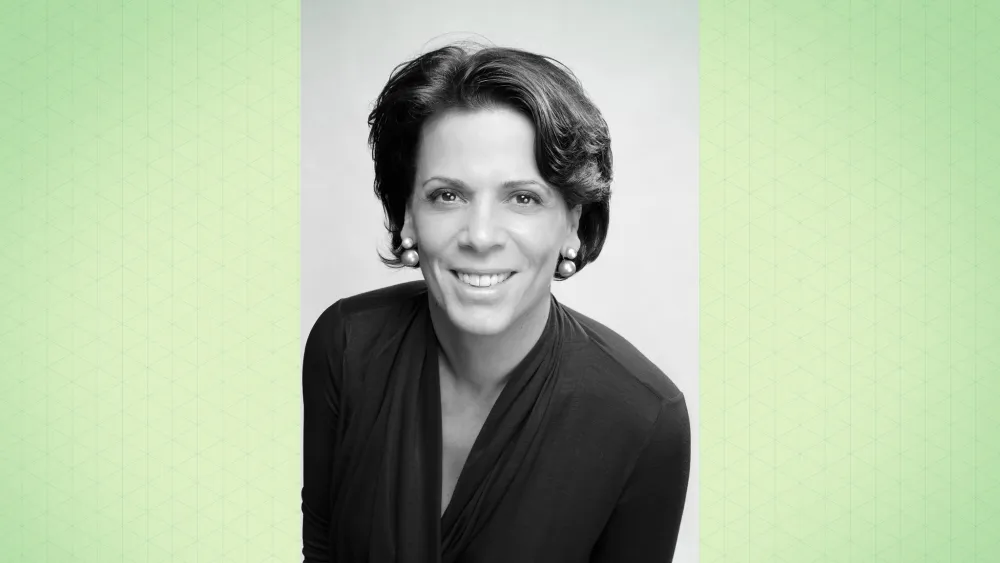Alexandra Palt is one of the world’s leading sustainability speakers and a respected authority in corporate responsibility. As Executive Vice President and Chief Sustainability Officer at L’Oréal, she has played a pivotal role in reshaping the company’s global sustainability strategy.
From launching the landmark Sharing Beauty with All programme to driving the ambitious L’Oréal for the Future roadmap, Alexandra’s work is rooted in aligning business goals with environmental and social imperatives.
Through her leadership at the L’Oréal Foundation, she continues to advocate for women’s rights and inclusive innovation—making her a powerful voice in the global movement for sustainable transformation.
Q: In the context of sustainable business, why should gender equality be considered a core priority rather than a peripheral issue?
Alexandra: “How can a company not place gender equality at the top of its priorities? There are so many reasons for doing so that I thought it would be a given by now. But if we need to restate them, then of course—it’s about accessing half of the world’s talent and competencies. Given the situation we all face, it’s simply not possible to overlook the skills and capabilities of women.
“We cannot design the future of our world—or the future of business—without the contribution of women. Not just because of the talent they bring, but because the world must also work for them. Without this, we fail to create functioning societies.
“Gender inequality is bad for the economy. Economies with higher rates of gender equality perform better. So, there are numerous economic and business arguments in its favour. And, of course, there is a moral imperative.”
Q: Back in 2012, you introduced the Sharing Beauty with All commitment. What were the driving principles behind that strategy, and how did it reflect the company’s broader sustainability ambitions?
Alexandra: “Sharing Beauty with All was the first generation of L’Oréal’s sustainability commitments. The CEO at that time, Jean-Paul Agon, had the ambition to create a transformative strategy for the company. He always said the two major challenges of this century would be digital and sustainability. So, even in 2012, we were ahead of our time.
“We decided to build a strategy for ecological transition that tackled our entire value chain. At the time, we didn’t just focus on easy wins or say, ‘We’ll do this now and that later.’ No—we analysed our impact across the full value chain and worked on each area to reduce our environmental footprint and improve our social footprint.
“That was our first-generation commitment, and through the achievements and maturity we gained, we were able to launch the second wave of commitments: L’Oréal for the Future. This allowed us to become even more ambitious and refined in our sustainability policies.”
Q: Reflecting on the outcomes of Sharing Beauty with All, what were the key successes—and what lessons did you take forward into the next phase of L’Oréal’s sustainability journey?
Alexandra: “We achieved most of our targets. In fact, we even outperformed on some of them—such as our carbon footprint. We reduced the carbon footprint of our industrial activity by 80%, which was a huge achievement.
“Some other goals were more challenging, but environmental science is always evolving. At times, we realised we had to reformulate and redefine our targets to ensure we were addressing the right problems in the right ways.
“Overall, the programme was a great success. In 2020, we announced the next generation of sustainability targets under the L’Oréal for the Future strategy. What makes this approach different is that we no longer ask, ‘What is our impact, and how much can we reduce it?’ Instead, we ask, ‘What does the world need from us?’
“Our new strategy is based on scientific principles—specifically the planetary boundaries. We asked, ‘What do we need to do so that by 2030, L’Oréal operates within these boundaries?’—meaning we do not extract more from the planet than it can sustainably give.
“This led to ambitious goals such as using 100% recycled plastic and ensuring 95% of our ingredients are bio-based or derived from green chemistry or biotechnology. A complete transformation began at the organisation. Starting early gave us the ability to be bold.
“People within the company became increasingly aware of sustainability issues, enabling us to move forward with great ambition—though of course, not without challenges.”
Q: Can you tell us more about your dual role at L’Oréal—leading internal transformation while also shaping the company’s philanthropic agenda through the Foundation?
Alexandra: “I held two roles at L’Oréal. The first was leading the transition to a new business model, alongside my colleagues and internal partners. This was our internal transformation.
“My second role involved leading L’Oréal’s external contribution to society. Historically, in the Anglo-Saxon world—particularly the United States—philanthropy has often involved significant financial contributions but relatively less emphasis on internal business transformation.
“Conversely, European companies have traditionally focused more on internal transformation, leaving societal issues to the welfare state.
“Today, we need both approaches. We can no longer operate as we did before. We need internal transformation—and we also have the resources, both financial and human, to help address the world’s most urgent challenges.
“As the head of L’Oréal’s philanthropic initiatives, I oversaw the Foundation’s work, including a charitable endowment fund dedicated to supporting women. We funded grassroots and community organisations around the world. Additionally, each L’Oréal brand has a commitment to contribute to society, and I helped define the best strategic direction for these actions.”
Q: As sustainability moves from a differentiator to an imperative, what innovations or systemic shifts do you believe will define the future of responsible brands like L’Oréal?
Alexandra: “I believe that for every brand—not just L’Oréal—sustainability will no longer be a side concern. It will be central to everything companies and brands do.
“The next step is to bring the right innovations to the market. For a cosmetics company like ours, that means things like refillable packaging, solid shampoos, and a wide variety of eco-conscious alternatives. We have to introduce these innovations and raise awareness around why they matter for “sustainability.
The final step—and perhaps the most important—will be what we call ‘choice editing.’ At some point, we will need to stop bringing products to market that don’t have an improved environmental footprint.
“Choice editing—ensuring that the only available products and services are the more sustainable ones—is truly the next level of maturity that companies must reach in the coming years.
“If we want to survive as a human species, we simply have to.”
This exclusive interview with Alexandra Palt was conducted by Jack Hayes.









































